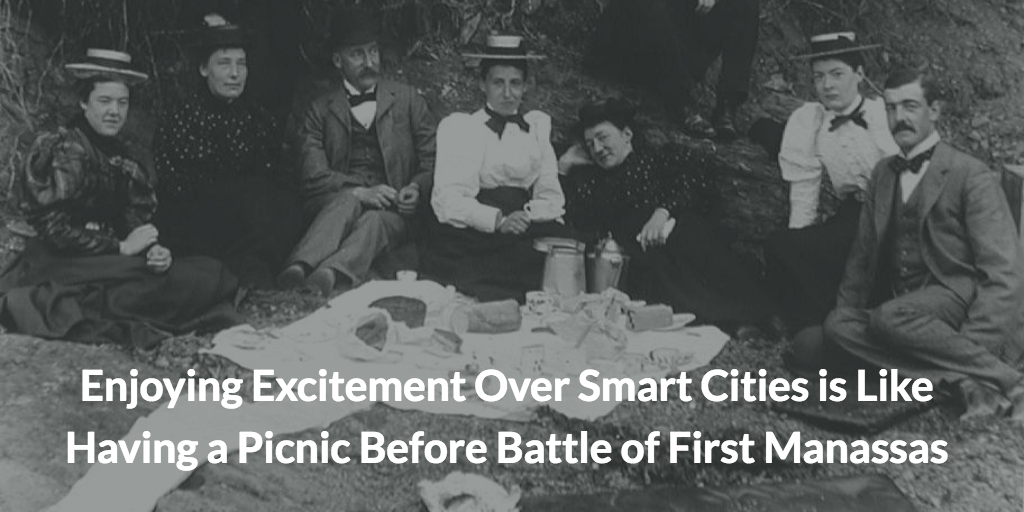When I was the Director of Intelligence for DoD’s first joint cyber defense organization (JTF-CND) our Commander (At the time, Army Major General Dave Bryan) and our J5 (Marine LTC Mike Davis) organized a visit for the senior staff to the Manassas Battlefield Park of Virginia. The purpose was not just team building, but to consider how enduring lessons of war applied to the new domain of cyberspace.
I recall Mike doing an excellent job, like only a Marine could do, in explaining the terrain of the battlefield, the disposition of forces, the moves and counter moves, and, perhaps most importantly, the surprises the battle would have for both the combatants and the locals. Was a good trip for the staff. We had been up and running as a team for a couple years but it was a fantastic way to keep us thinking about the dynamic adversaries we faced in cyber conflict.
Background of the Battle:
In July 1861 many citizens of Northern Virginia were very excited to learn that war was about to start right in their own neighborhood. Many followed the newly formed troops of General McDowell’s army to watch. Many citizens of Manassas spread blankets out and had festive picnics as they prepared to watch the Union do away with the rebels and end the insurrection of the south.
As you can probably imagine, the horribly bloody carnage was not what they expected to see. And the horrors of war would go on for four more years.
Lessons:
- Never wish for war, it will never go as well as you think.
- Never think war will end quickly. They end when they end.
- And a lesson from almost every other battle in every other war, never underestimate your enemy. It results in failure every time.
All three of these lessons are relevant to cyber conflict. But the last lesson is especially important in the context of cybersecurity and cyberwar. Never get complacent or arrogant and think that your opponent is not a thinking, creating, dynamic adversary. Do whatever you can to raise your defenses and study your adversaries, but be prepared to be surprised.
There is another lesson that I never thought of till today. The people of 1861 Manassas were not prepared at all for having war come to their city. No civilian ever is, but as a citizen of Manassas today I have to wonder if our city is ready for modern conflict. How would Manassas do in cyber war? And what about the many other cities, counties and states of the nation, most of which hold critical information on citizens and businesses. There is no way we are ready for what is in store.
On top of that, the smart cities movement and massive deployment of IoT is now an unstoppable force. And there are no indications of any preparations for cyber conflict being made in smart cities.
Maybe it would help us prepare for the future if we spend a little time reflecting on our past. My recommendation: Read more about the Battle of First Manassas here. And book some time soon to walk the battlefield yourself. As you do, reflect on what it means for the smart cities of tomorrow.
And a concluding recommendation. Consider this hypothetical question: Is enjoying the excitement about smart cities like having a picnic before the Battle of Manassas?

More CTOvision Reporting:
- Some Thoughts on the Iranian Cyber Army and what they mean to Cyber
- Sun Tzu: Strategy without tactics is the slowest route to victory. Tactics without strategy is the noise before defeat.
- Hannibal: I will either find a way or make one
- Working in Cybersecurity: Life on the front lines, in the C-suite, and everywhere in-between
- Smart Cities Cybersecurity Challenge
- Cyber War: The Fastest Way to Improve Cybersecurity?
- Information Warfare: A Historical Approach
For more on these topics see the CTOvision Guide to National Security Technology and